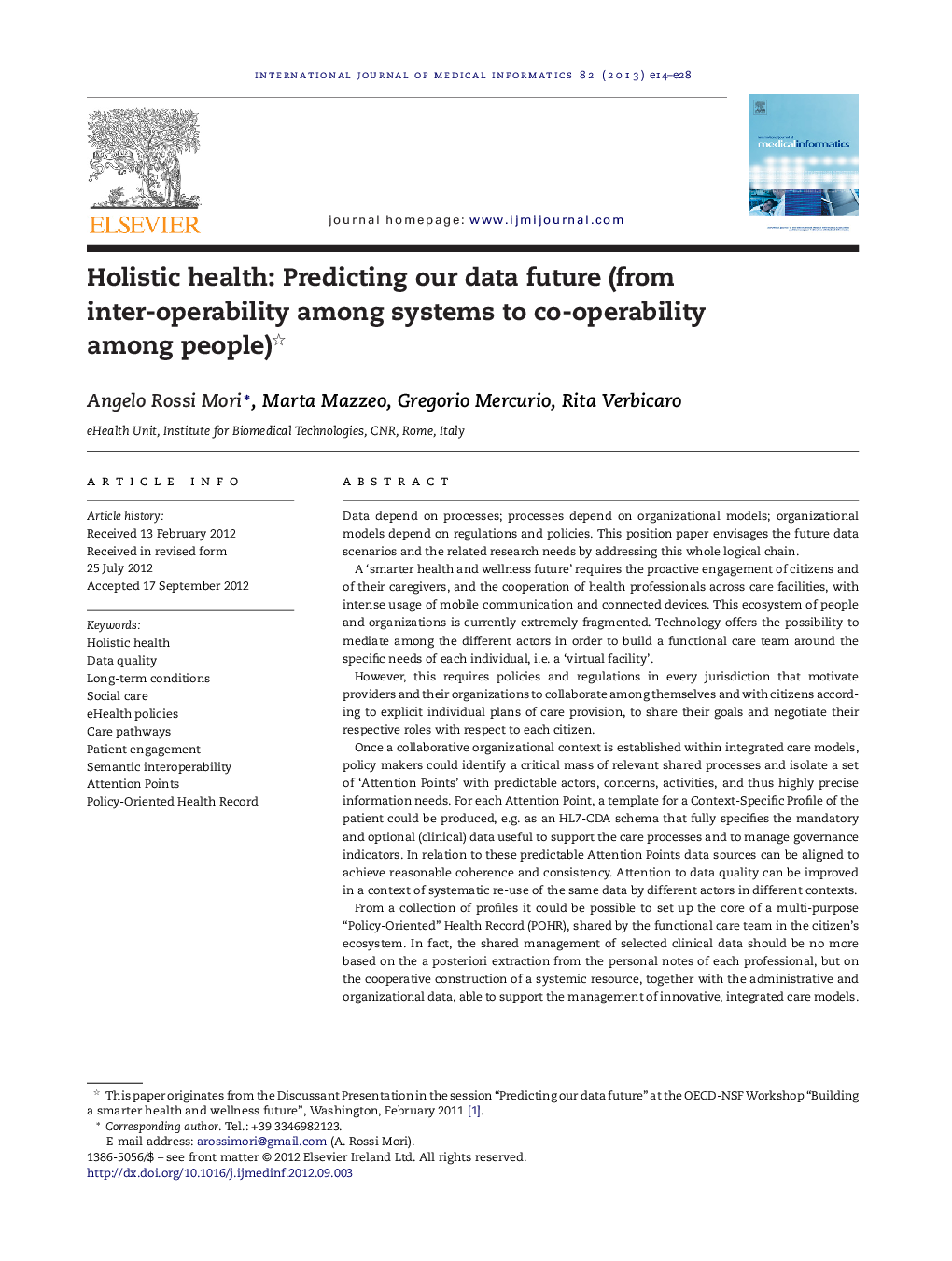| کد مقاله | کد نشریه | سال انتشار | مقاله انگلیسی | نسخه تمام متن |
|---|---|---|---|---|
| 516207 | 1449136 | 2013 | 15 صفحه PDF | دانلود رایگان |

Data depend on processes; processes depend on organizational models; organizational models depend on regulations and policies. This position paper envisages the future data scenarios and the related research needs by addressing this whole logical chain.A ‘smarter health and wellness future’ requires the proactive engagement of citizens and of their caregivers, and the cooperation of health professionals across care facilities, with intense usage of mobile communication and connected devices. This ecosystem of people and organizations is currently extremely fragmented. Technology offers the possibility to mediate among the different actors in order to build a functional care team around the specific needs of each individual, i.e. a ‘virtual facility’.However, this requires policies and regulations in every jurisdiction that motivate providers and their organizations to collaborate among themselves and with citizens according to explicit individual plans of care provision, to share their goals and negotiate their respective roles with respect to each citizen.Once a collaborative organizational context is established within integrated care models, policy makers could identify a critical mass of relevant shared processes and isolate a set of ‘Attention Points’ with predictable actors, concerns, activities, and thus highly precise information needs. For each Attention Point, a template for a Context-Specific Profile of the patient could be produced, e.g. as an HL7-CDA schema that fully specifies the mandatory and optional (clinical) data useful to support the care processes and to manage governance indicators. In relation to these predictable Attention Points data sources can be aligned to achieve reasonable coherence and consistency. Attention to data quality can be improved in a context of systematic re-use of the same data by different actors in different contexts.From a collection of profiles it could be possible to set up the core of a multi-purpose “Policy-Oriented” Health Record (POHR), shared by the functional care team in the citizen's ecosystem. In fact, the shared management of selected clinical data should be no more based on the a posteriori extraction from the personal notes of each professional, but on the cooperative construction of a systemic resource, together with the administrative and organizational data, able to support the management of innovative, integrated care models.In addition, the policy-oriented focus on routine data within a set of predictable situations makes it possible to stratify an appropriate number of citizens into homogeneous classes and to produce timely indicators of processes and outcomes from routine data for governance purposes, e.g. to optimize the allocation of resources, to drive continuous education, or to promote epidemiological studies.
► Effective semantic interoperability can only be obtained with structured routine data in predictable situations.
► Managerial, organizational, clinical and administrative priorities guide policy makers to select predictable situations.
► Structured routine data can be used for multiple purposes, also to timely extract indicators for management purposes.
► Ability to cooperate (co-operability) among people requires relevant data in right context with agreed admitted values.
► Willingness to cooperate requires agreements among organizations, which depend on regulations and cultural background.
Journal: International Journal of Medical Informatics - Volume 82, Issue 4, April 2013, Pages e14–e28